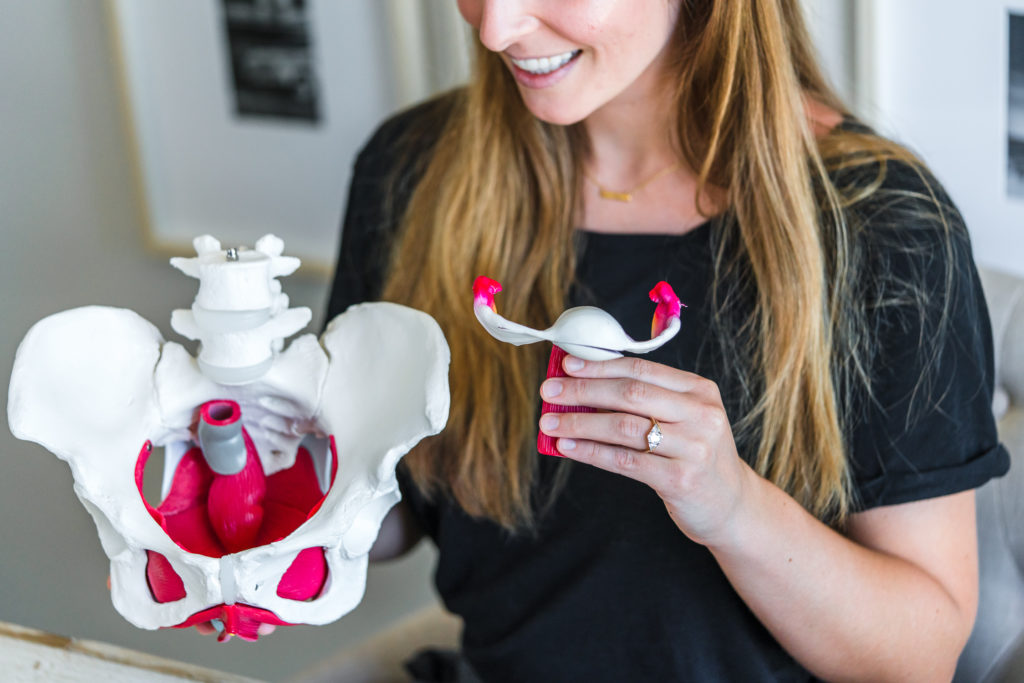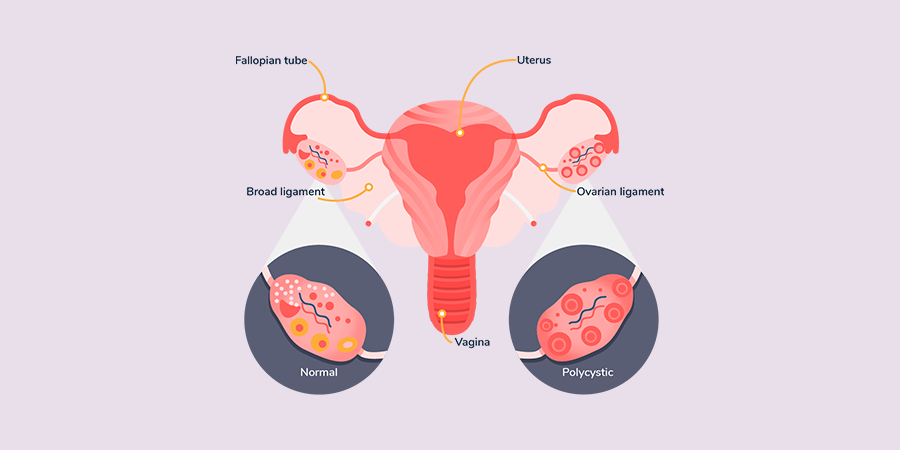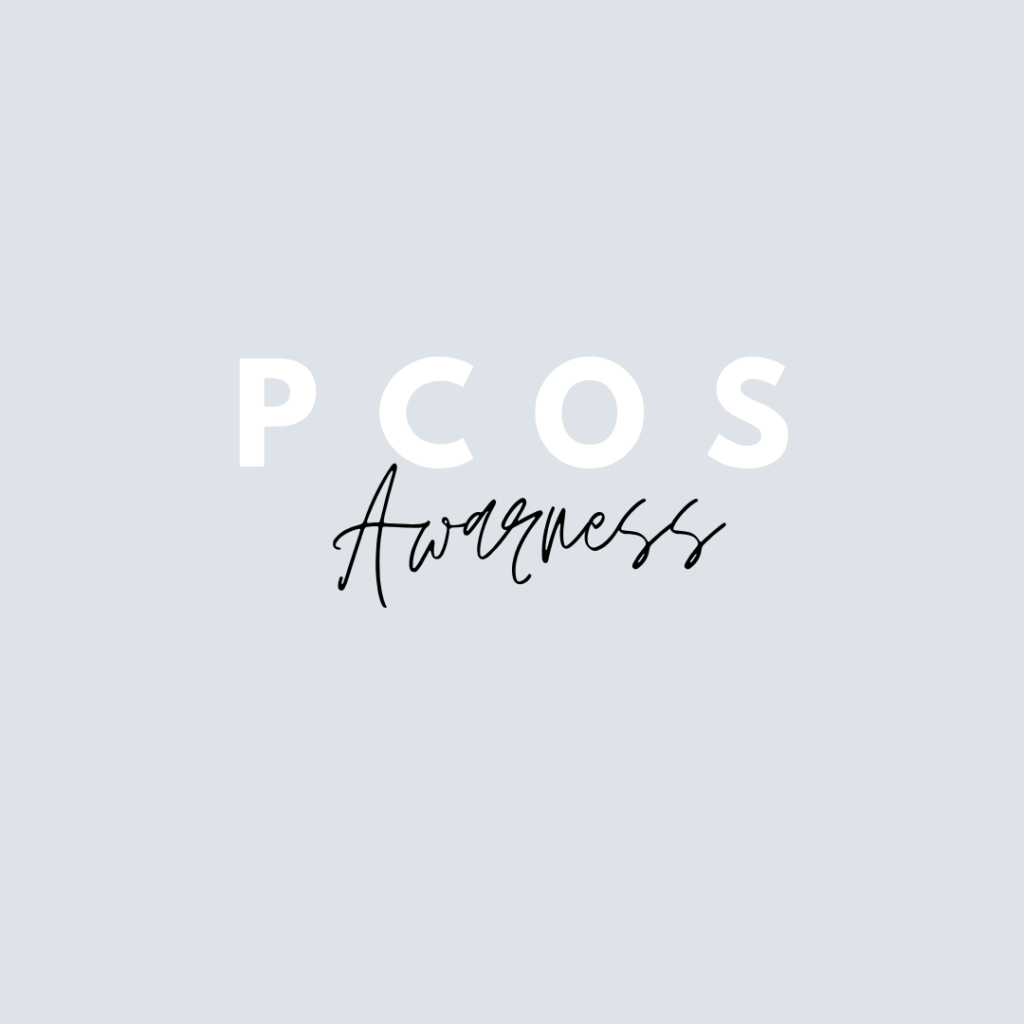Polycystic Ovarian Syndrome (PCOS) AWARENESS

Hi all! So this month I decided to #1 highlight pelvic health topics via monthly 5k awareness fundraisers and #2 GET FIT (LOL). On a personal note I had a ACL repair back in March 2020 and am SO excited to run again… never thought I would say that! Huge shoutout to my PT’s at Accelerate Physical Therapy in Newport Beach (they are awesome and PT’s need PT’s sometimes)!

But all personal stuff aside, when thinking of how best to help YOU and anyone else who is interested in pelvic health I realized how NEEDED this was to bring light to pelvic health conditions & support research efforts for each unique one!
Lets dive into this months HIGHLIGHT…Polycystic Ovarian Syndrome (PCOS). This long name basically describes what typically happens with the condition; the hormonal imbalances cause enlarged ovaries with small CYCTS on the outer edges (1). Poly (many) Cystic (cysts) on the Ovaries.
Now this disturbance in hormones is thought to be the most COMMON endocrine (basically hormone secreting) disorder found in women! WOW. It not only impacts women of all races and ethnicities but mainly targets women who are in their reproductive stages of life. Estimates vary on prevalence, probably from a lack of testing/AWARENESS, but most report about 15-20% of women have this condition (2)!

Common symptoms of PCOS include:
- Irregular periods and painful periods: irregular periods cause menses cycle <21 days or >35days
- Polycystic ovaries: cysts usually found using ultrasound (not every woman with PCOS has these cysts)
- Hyperandrogenism: excessive male hormones like testosterone; causing acne and hirsutism (excessive male pattern hair growth)
Other features linked to this syndrome include:
- Type 2 diabetes
- Difficulties getting pregnant
- Dyslipidemia (elevated cholesterol or fats in blood)
- Obesity
Even today the cause of PCOS is not fully known but 2 major risk factors include diabetes and obesity (3).
As a pelvic health physical therapist, pelvic floor therapy helps individuals through the discomforts associated with PCOS (painful periods, abdominal pains, pain with intercourse, and such). We work on movement (cardiovascular health to reduce diabetes risks and obesity concerns), fascial release, visceral manipulations, and sometimes internal vaginal manual therapy.
NOW, knowing what PCOS is my major takeaway for you is AWARENESS:
- If the symptoms listed above ring true to you speak with your doctor and discuss!
- Awareness can lead you to be on the lookout for possible fertility concerns and period troubles. Try tracking your period to gain awareness of your “normal” cycle! My favorites are…
- Added awareness about obesity and diabetes risks on your body. The best combatant for these are EXERCISE (another reason to support PCOS through a 5k walk/run!). During these crazy COVID-19 times working out can be difficult but here are my favorite online workouts!
- PCOS is linked with hormone disruption; read my next blog article on environmental toxins and how they also do this! Basically how your makeup, sunscreen, hair products, and household cleaning products may be impacting your hormonal health.

Overall PCOS is COMMON, although they may not know everything about how it happens, if you have been diagnosed or think you may have it speak with your doctor and if you have pain please find your local pelvic PT to address! I also offer free 15 min consults for anyone who believes they may have pelvic health concerns!
Finally, consider a donation today PCOSawareness.com and join the virtual 5k walk/run before the end of the month to promote awareness!

References:
- Hayek S et al. Poly cystic ovarian syndrome: an updated overview. Front Physiol. 2016; 7:124.
- Witchel S et al. Polycystic ovary syndrome: pathophysiology, presentation, and treatment with emphasis on adolescent girls. J Endocr Soc. 2019; 3:8.
- McCartney C et al. Polycystic ovary syndrome. N Engl J Med. 2016. 375 (1):54-64.
[…] chemicals have decreased symptoms associated with pelvic health conditions such as endometriosis, PCOS, and […]